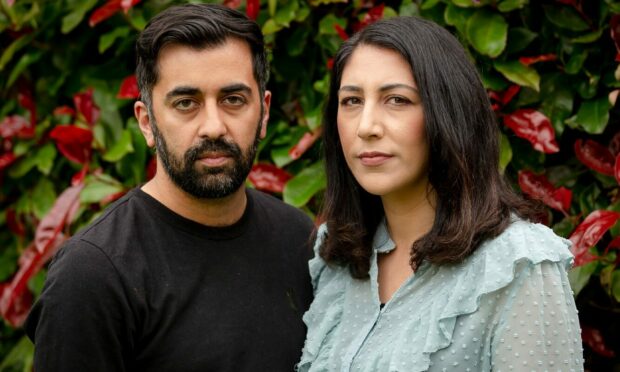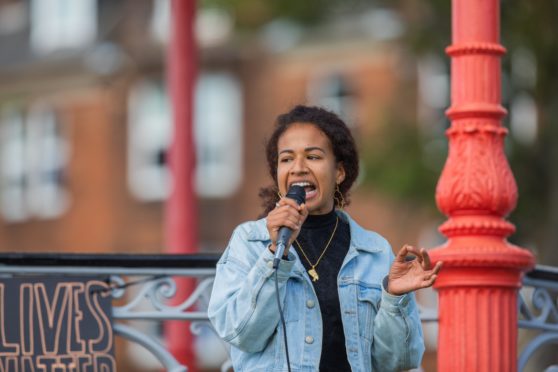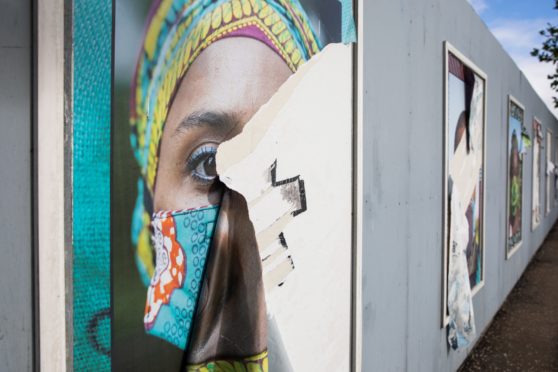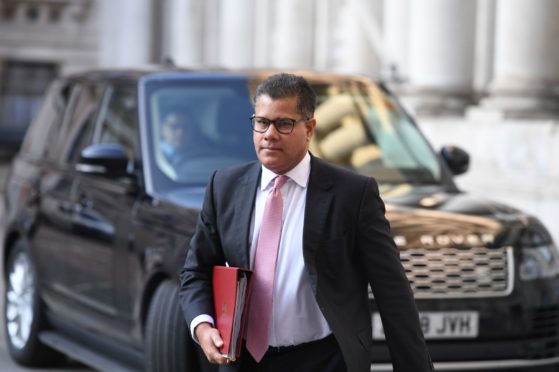It may still be the summer recess at parliament, but that doesn’t mean it has been a quiet week in Scottish politics.
Health Secretary Humza Yousaf and his wife Nadia El-Nakla are now taking legal action against Little Scholars Nursery, claiming the Broughty Ferry nursery refused their daughter a place due to her “ethnic” sounding name.
Whatever the outcome of this legal action, their story has exposed one thing – Scotland has a problem with racism.
As soon as the couple went public with their allegations, the community at large turned on them.
Some said they were “playing the race card” to get what they wanted.
Others said they misunderstood the situation and jumped to conclusions.
The comments on social media did not stop there, leaving mum Nadia in tears.
Can Scotland face up to its racism?
Can Scotland face up to its structural racism, and is there anything those in power can do to change things for the better?
Last summer I covered the Black Lives Matter demonstration in Dundee, where a number of people of colour shared their experience and there was one common thread with all of their stories – they had all experienced racism in Scotland, and all desperately wanted that to change.
Only a few weeks later, a Black Lives Matter mural trail by local artist Sekai Machache opened in the city and days after, the images were ripped down.
Ms Machache said she was expecting that to happen.
If all these events last year did not confirm Scotland has a problem with racism, the backlash the health secretary received certainly do.
Tackling the climate emergency
But while all of this was happening, a UN scientific report into climate change was published.
It says human activity is changing the climate in unprecedented and irreversible ways, and says it is a “code red” for humanity.
Even in the last few weeks, Scotland has seen soaring temperatures and floods.
UN Secretary General Antonio Guterres said if the world forces all combine, a climate catastrophe can be avoided, and said government leaders need to be held accountable for making this change.
Scotland could lead the way on this, and with Glasgow hosting the UN COP26 climate conference later this year, it also has a great platform to do this.
In 2020 over 97% of Scotland’s electricity consumption came from renewable sources, mainly wind power.
As impressive as this is, it still falls short of the 100% target.
It is possible for the government to lead by example and reduce the country’s reliance on fossil fuels.
There are calls for everyone to move to electric cars within the next few years, with the Scottish Greens wanting this done as soon as 2026.
But when we surveyed MSPs not one of them replied to say they currently own a fully-electric car.
Alok Sharma, president of the COP26 summit, has also come under fire recently for driving a diesel car and for visiting 30 different countries since February (not only has that implications for the climate crisis, but it is also reported he did not self-isolate when returning from red-list countries either).
How can the general public be inspired to switch to electric when politicians can’t do it themselves?
And how can those making decisions really know what is needed to make the country more electric car friendly if they themselves are not out there experiencing this themselves?
There is also the question of the oil and gas industry.
It dominates the north east of Scotland, and there needs to be a drastic change to the area’s reliance on this fossil-fuel-burning industry.
The Scottish Government needs to make drastic and long-lasting decisions here if it really is to go as far as it can to tackle the climate emergency and show the world at COP26 it is serious about trying to reverse what the UN says is irreversible.
But this also cannot be done to the detriment of those on the ground working in the industry, there needs to be a solid plan on what all the families who currently rely on oil and gas jobs are going to do.
There are lots of issues on the Scottish Government’s plate at the moment, chief amongst them the coronavirus pandemic.
But institutional racism and the climate emergency need to be tackled right here and now if Scotland is to become a safer and more civilised place to live.














